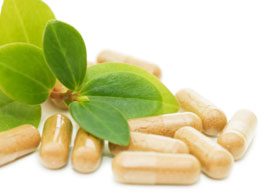The newest ingredients in natural health products
Health Canada has approved new ingredients for natural health products. Here’s what you need to know

Source: Best Health Magazine, March/April 2012
Natural health products’such as vitamins, minerals, herbal remedies, homeopathic medicines, probiotics and other supplements’must be approved by Health Canada before they can be sold to consumers over the counter. You may be seeing more of them at your drugstore soon: Health Canada just approved a number of naturally sourced ingredients for use in natural health products that were previously restricted to prescription medications.
We spoke with naturopathic doctor Heidi Fritz, of the department of research and clinical epidemiology for the Canadian College of Naturopathic Medicine, to find out more about a few of them.
Centella asiatica
Centella asiatica is also known as the herb gotu kola, a plant native to India, Japan, China, Indonesia, South Africa, Sri Lanka and the South Pacific. Often it is used to treat anxiety and skin conditions, but Fritz says it can also help improve cognitive function and memory, and reduce the appearance of varicose veins. It is not recommended for pregnant or breastfeeding women.
Theobromine
Theobromine is a phytochemical found in cocoa. It’s a mild stimulant that affects humans similarly to caffeine (although to a lesser degree), and it ‘also has a slight diuretic effect. As with caffeine, there may be risk for heart palpitations at high doses, according to Fritz.
Levocarnitine
Levocarnitine, or L-carnitine as it is more commonly referred to, is ‘an amino acid that our bodies produce naturally. Fritz says it could be used for heart conditions and muscle degeneration. But you may start to see it in natural weight-loss products, as it helps to turn body fat into energy. Your body will only absorb so much, though, so don’t exceed what the product recommends.
L-Tryptophan
L-Tryptophan, also an amino acid, is famously known as the chemical ‘in turkey that makes you tired. It was approved at a dose of 220 milligrams, which Fritz says may be too low to see any benefit. She adds that it can be used to help with depression and insomnia. Health Canada reports that it can enhance the effectiveness of antidepressant medications.
Fritz warns: ‘These ingredients have been shown to be safe in the amounts that Health Canada is now allowing, but that’s not an endorsement of efficacy.’ As with any health product, don’t self-prescribe. Consult a health professional about what might work for you and whether it will interact with other medications, natural health products or supplements you’re taking.
This article was originally titled "Going natural" in the March/April 2012 issue of Best Health. Subscribe today to get the full Best Health experience’and never miss an issue!




